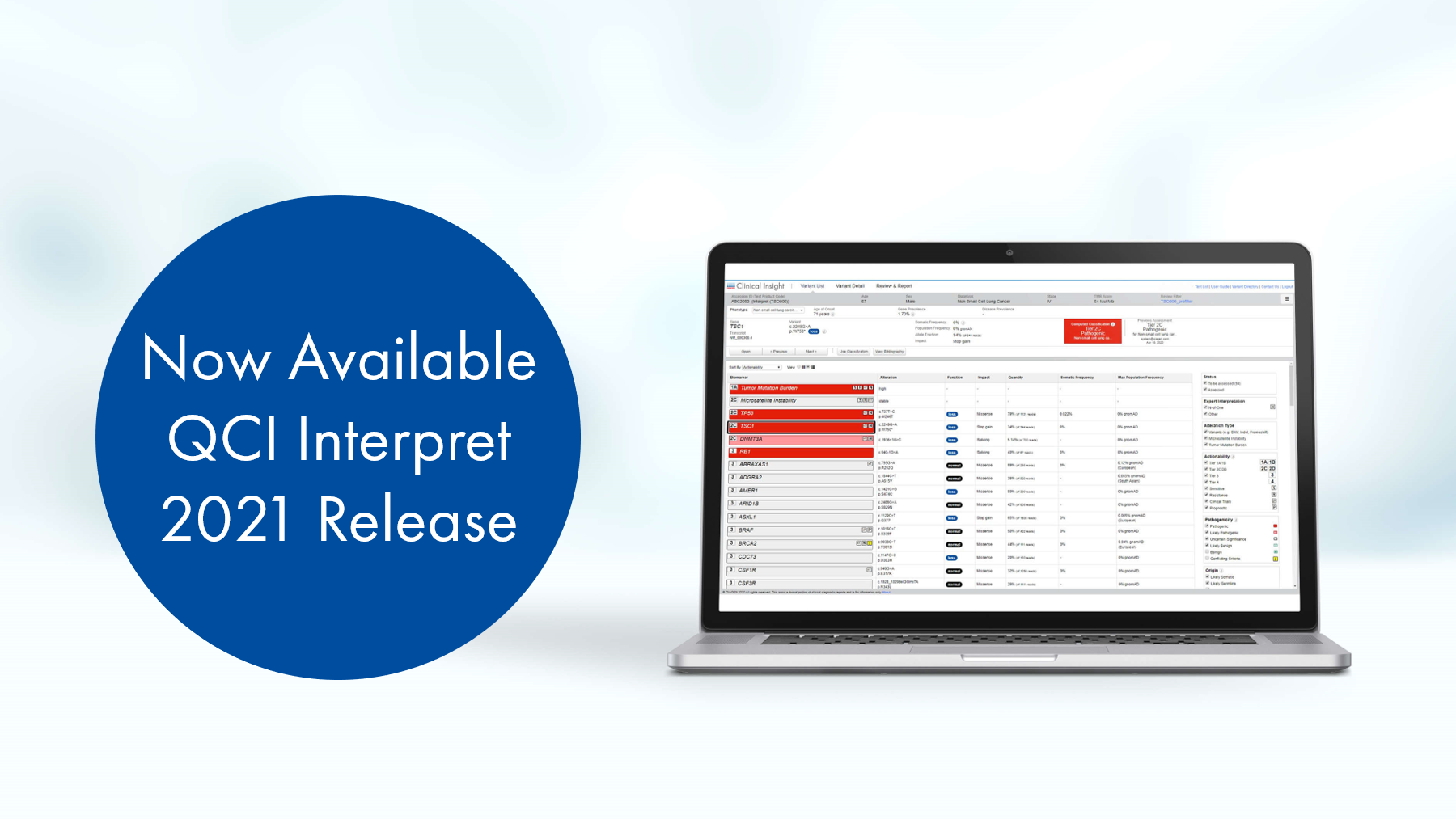


















We are very pleased to announce the latest QCI Interpret software release is now available. Expanding on the software’s current capabilities, the update brings major content and functionality improvements to better support the exon-level interpretation and reporting of copy number variants (CNVs).
Improved handling of CNVs and structural variants (SVs)
QCI Interpret is now able to handle CNVs and SVs more comprehensively than before. The software has been improved to better consume, process, and visualize these variant types at the level of exon and breakpoints. QCI Interpret allows you to better assess the physical structure, functional impact, and clinical relevance of copy number alterations and gene fusions detected in NGS secondary analysis pipelines. By utilizing the Test Product Profile (TPP) capability copy number variants in genes of interest are now more accurately described.
Bibliography support for CNVs
With the addition of breakpoint-level and feature-level matching for CNVs, QCI Interpret now supports confident assessment of bibliography content for CNVs of interest. Users can explore clinically relevant CNV findings from the Human Gene Mutation Database (HGMD) and from expert-curated content from the QIAGEN Knowledge Base. New bibliography features allow users to quickly identify and capture relevant references to determine the significance of the variant of interest and to include in clinical reports.
Additional interpretation support for CNVs
With the new release, users can access more resources to support the interpretation of CNV variants with active links to public databases including GnomAD, DECIPHER, DGV and dbVar.
CNV classification calculator for hereditary workflows
In the hereditary workflow experience exon-level classification of constitutional copy-number variants using our new CNV classification feature. This is based on the technical standards published by ACMG and ClinGen .
Improved support for METex14 and EGFRvIII splice variants
With improved structural variant handling, two prominent exon skipping mutations: METex14 and EGFRvIII, are classified more accurately and reveal relevant treatments and clinical trials. This ultimately drives better reporting with treatment options for exon variants detected from RNA.
Integration with DNAnexus through the QIAGEN QCI Connector
In the DNAnexus ecosystem, QIAGEN has published a tool to help DNAnexus pipeline owners terminate the output of bioinformatics pipelines in QCI Interpret for tertiary interpretation.
Platform performance improvements
With the new release, numerous back-end improvements have been made to QCI Interpret to make these calculation-intensive operations more efficient.
For information about the latest release, please contact customer support at ts-bioinformatics@qiagen.com.